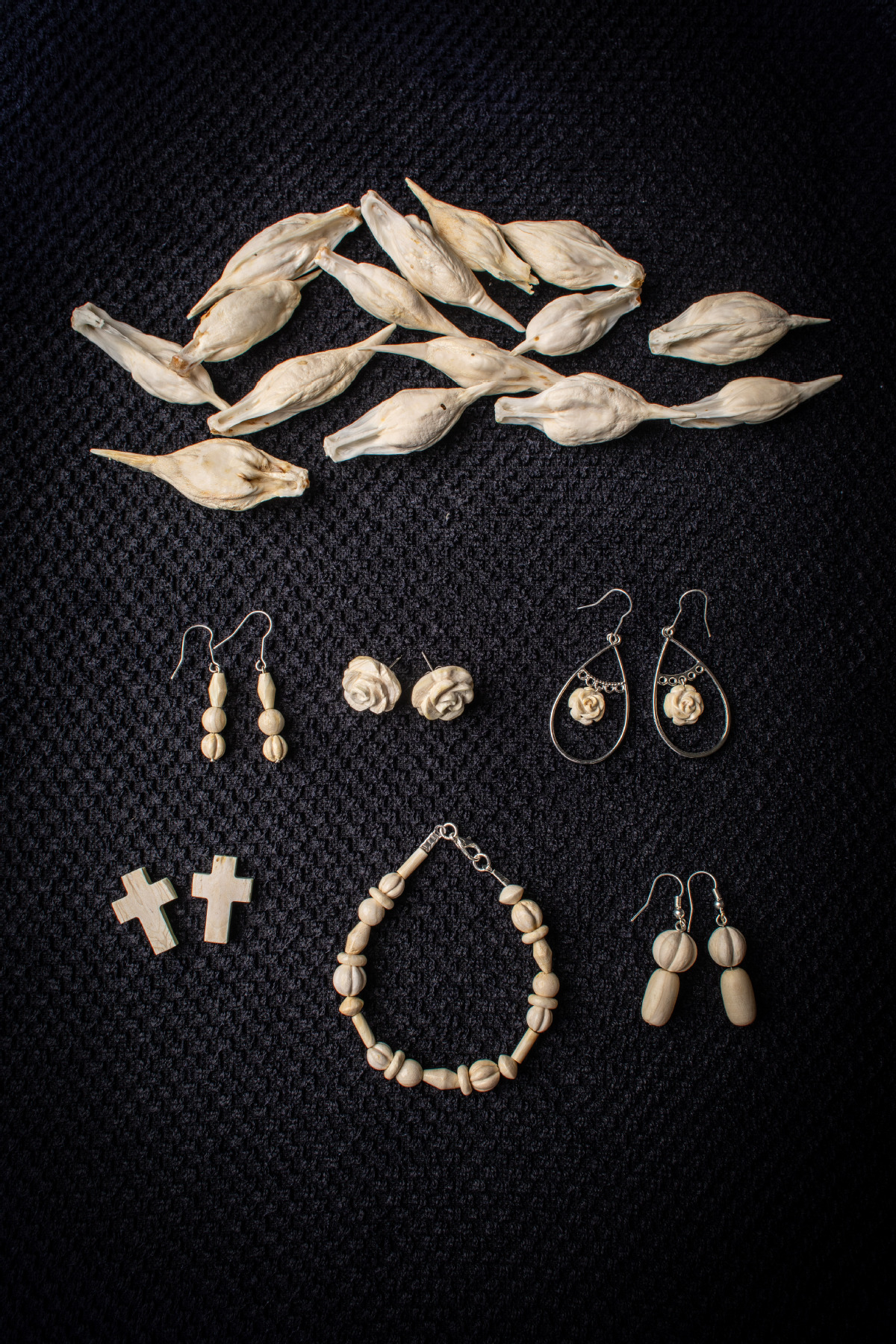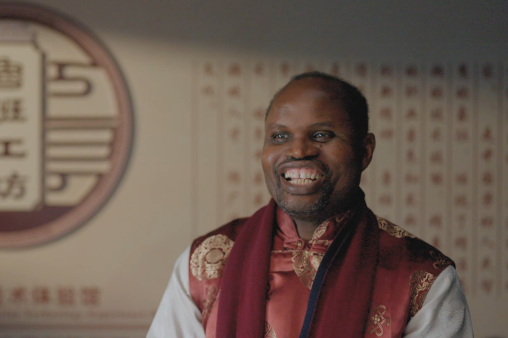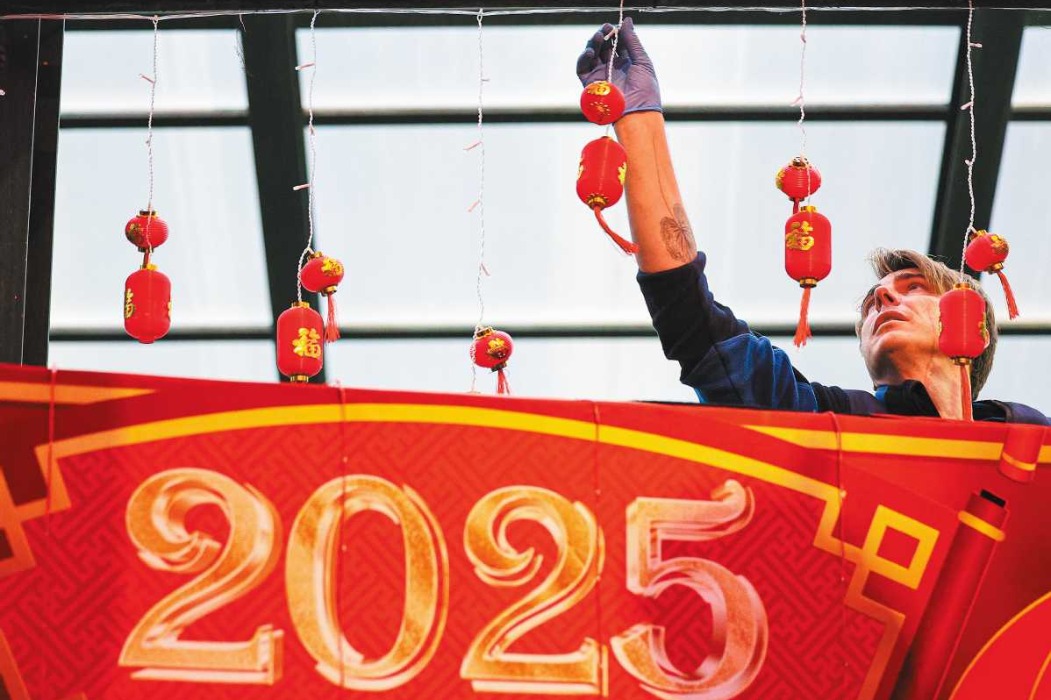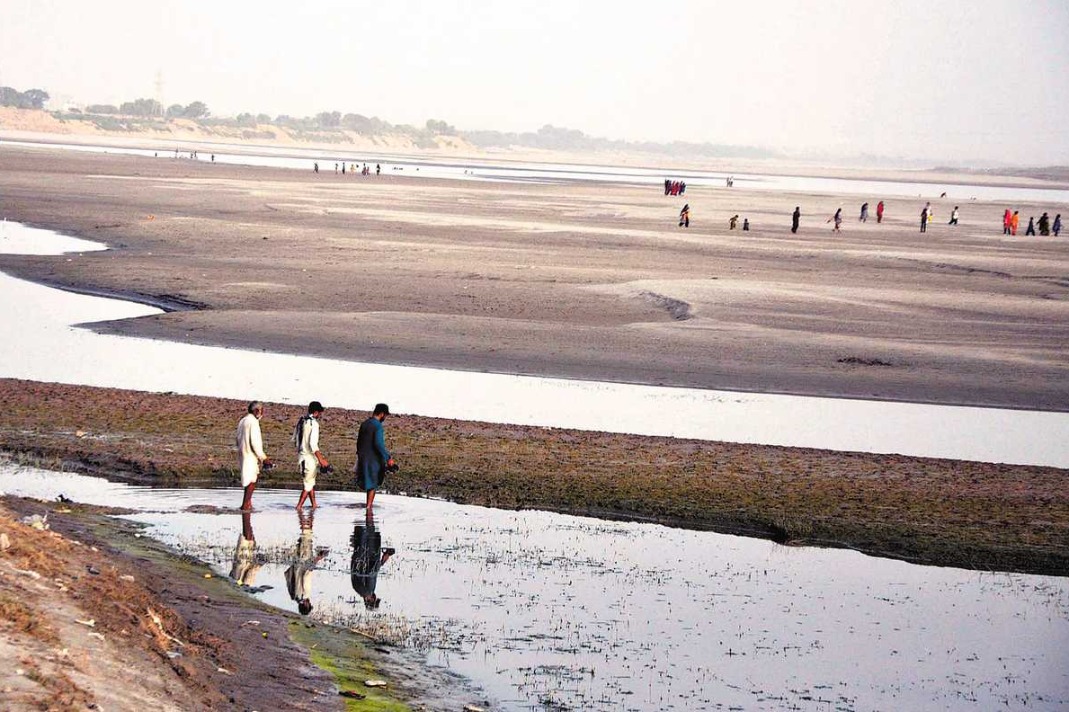Fish story: Chinese American woman's carp business back above water


When the world began to resume normalcy in 2022, container shipping costs had dramatically increased to $28,000, from $8,000. She had to find new investors and reset the production chain.
"I have always done export business, and I know it's better to sell bread than flour," said Yu, who has searched for more value-added products for Asian carp during the difficult time.
But she's turning away from the fish export business due to the unexpected trade war.
"I will not expand frozen fish export anymore," she said. "Look at the fish head I am exporting to China. I have to pay an extra 40 percent tariff. How can I do business with factors out of my control?"
Yu said she currently serves only existing overseas customers who have had more than a decade's relationship with her.
Instead of the international market, Yu said she's focusing on expanding the Asian American market domestically. The carp fish head, intended for soup, is currently available in New York, Los Angeles and Chicago, cities with large Asian populations.
She also has decided to produce more processed fish food products for the US market: fish jerky, smoked or salted fish filet. Grounded fish meat has been made into fish balls, fish cake, fish eggroll and fish dumpling. Grounded fish and fish skin are turned into dog treats.
Yu also made use of the inedible fish parts. Fish skin has been adopted as an eco-friendly material to make fashion products.
Inversa, a company run by a group of young top college graduates, has processed the carp skin into leather material branded as Silverfin. Fashion designers have incorporated the Silverfin to make belts, wallets, shoes and bracelets.
The Italian fashion brand P448 is experimenting with the carp skin as part of its materials for leather shoes.
Yu has developed her own products by making jewelry out of fish bone and using fish skin as accent piece for leather jackets.
Lastly, the remaining fish waste is turned into fertilizer and fish meal.
Out of the ashes of the industrial park, Yu attracted new investors and launched a more ambitious project in January — Mighty Rivers Regional Center, which covers 14 counties along the Mississippi River in four states: Missouri, Illinois, Kentucky and Tennessee.
"We are aiming to attract investment from China, Vietnam and India," said Yu. "We had many US investors who came and left because this is not a project for quick, easy and big profit."
But it's an environmentally sound project, and Yu is proud that her project is helping to fix a problem that requires decades to fix.
Her effort caught the eyes of people who care about the environment. National Geographic explorer Alizé Carrère made a short film Adaptation: Kentucky to document her efforts. The film attracted ecologically conscious young entrepreneurs such as those from Inversa to source fish skin from her.
Her resilience and innovative spirit also have won strong support from three Kentucky governors.
"Angie's innovation, and true innovation! Look at all of these different products using every single bit of a fish that was seen rightfully as an invasive species but finding a market for every single part of it, creating jobs and opportunity along the way," Kentucky Governor Andy Beshear said at the Mighty Rivers Regional Center's opening ceremony.
"As we see in all these samples, there are plenty of uses for this fish. Think about that, she has turned a nuisance into so many opportunities, and not just one market, but multiple markets across the world," he continued.
More than 10 years ago when Two Rivers Fisheries was launched, Steve Beshear, Andy Beshear's father and then governor, showed up to cut the ribbon in support of Yu's effort. Former governor Matt Bevin also toured her company in 2018.
Yu's Two Rivers Fisheries has processed more than 30 million pounds of Asian carp so far. Her company has won numerous awards, including being named one of the Top 100 small business in 2024 by the US Chamber of Commerce.
The regional center will operate on a much larger scale than Two Rivers Fisheries, said Yu. There will be three processing centers in Missouri, Illinois and Tennessee, and two of them are expected to start operating this year.
"We aim to process 20 to 30 million pounds of carp at each center every year. At full capacity, we will process at least 60 million pounds a year," said Yu. "Our goal for this year is 30 to 40 million pounds."
As the only Chinese in town, Yu said she feels at home in rural Kentucky.
"I have been always curious about new stuff and like to explore. When I first came here, I didn't know anyone. Now I have made many friends. People are very friendly here," said Yu who attends a local church and participates in charity work and other community events.
She has been given numerous awards, including being named a Kentucky Colonel, the highest honor awarded to a citizen by the state as Kentucky's ambassadors of good will and fellowship around the world.
"I have 'achieved' mistakes more than anything else in the past 12 years. Those mistakes are the best lessons for me to develop the future of the Regional Center," Yu said of her decadelong struggle to make a business out of unwanted Asian carp.
































